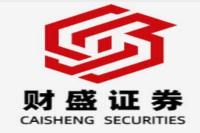Unlocking the Golden Years: How Banks Are Revolutionizing Retirement Finance in China
Meta Description: Explore the innovative strategies Chinese commercial banks are employing to revolutionize retirement finance, encompassing pension funds, elderly care services, and the burgeoning silver economy, with insights into ICBC's leading role.
Imagine a future where retirement isn't a period of decline, but a vibrant chapter brimming with purpose, joy, and financial security. This isn't just a utopian dream; it's the ambitious goal driving a seismic shift in China's financial landscape. With a rapidly aging population, the nation faces a monumental challenge—and an unprecedented opportunity. The "silver tsunami," as some call it, isn't just about providing for the elderly; it’s about fostering a robust, sustainable "silver economy" that benefits everyone. This requires a sophisticated and multifaceted approach to retirement finance, and China's commercial banks are stepping up to the plate. This isn't about simply managing pensions; it's about building a comprehensive ecosystem that supports the physical, mental, and financial wellbeing of seniors, creating innovative financial products and services that cater to their unique needs, and ultimately, shaping the future of retirement itself. This in-depth analysis will delve into the strategic initiatives of leading commercial banks, highlighting their groundbreaking approaches to pension fund management, elderly care financing, and investments in the burgeoning silver economy. We’ll unveil the innovative solutions, explore the challenges, and chart the course towards a more secure and fulfilling retirement for all. Prepare to be amazed by the ingenuity and dedication reshaping China's retirement future. We'll go beyond the surface-level statistics and take you on a journey into the heart of this crucial national undertaking, showing you the real-world impact of these changes, from the community level all the way to the national stage.
Pension Fund Management: A Cornerstone of Retirement Security
The Chinese government's emphasis on strengthening its three-pillar pension system is driving significant change in the financial sector. Commercial banks, particularly behemoths like the Industrial and Commercial Bank of China (ICBC), are playing a pivotal role in managing these funds. ICBC, for example, boasts over ¥4.8 trillion (approximately US$670 billion) in managed pension assets as of late 2024—a staggering figure that underscores its dominance in this arena. Their success hinges on a multi-pronged strategy:
-
Comprehensive Product & Service Ecosystem: ICBC has built a holistic system encompassing everything from pension fund management and account management to investment strategies and custodial services. This all-in-one approach streamlines the process for both individuals and businesses.
-
Expert Asset Allocation: A dedicated Pension Asset Allocation Committee, drawing on ICBC's vast resources, meticulously crafts investment strategies to ensure optimal returns while mitigating risk. This commitment to sophisticated risk management is crucial for ensuring the long-term viability of pension plans.
-
Full-Spectrum Licensing: ICBC and its subsidiaries possess a complete set of licenses required for all aspects of pension management, enabling them to offer a comprehensive and highly competitive service. This regulatory compliance is paramount to building trust and ensuring the stability of the pension system.
-
Focus on Enterprise Annuities (Second Pillar): Recognizing the crucial role of enterprise annuities in bridging the gaps in the pension system, ICBC is actively promoting their adoption. This proactive stance reflects their commitment to strengthening the overall retirement security net.
The establishment of “Pension Service Stations” in various branches—like the one at the Jinan Longao branch, strategically located near the local Human Resources and Social Security Bureau—demonstrates a commitment to accessible, client-centric service. These stations provide not only processing services but also comprehensive guidance and support, helping both employers and employees navigate the complexities of pension planning.
Enhancing Elderly Care: A Human-Centric Approach
Beyond managing pension funds, the true measure of success lies in ensuring the wellbeing of seniors. This requires a holistic approach that combines financial support with high-quality elder care services. The example of Shandong Taikang Medical and Health Industry Co., Ltd. (referred to as “Bo Kang”), illustrates this critical intersection.
Bo Kang's Integrated Model: Bo Kang provides a comprehensive range of services, from day care to long-term care, home healthcare, community rehabilitation, and palliative care. This integrated model addresses the diverse needs of the elderly population.
The Human Touch: Unlike some facilities that prioritize flashy aesthetics over genuine care, Bo Kang emphasizes personalized service and a warm, supportive environment. Their staff goes above and beyond, providing not just physical care, but emotional support and meaningful engagement.
Technological Integration: ICBC's "Silver Hair Industry Cloud" is a game changer. This SaaS-based system provides free access to various functions for elder care facilities from management of supplies, fixed assets, to detailed health monitoring of residents. This system not only enhances operational efficiency but also provides families with real-time access to their loved ones' wellbeing.
This showcases how banks aren't just providing loans; they’re actively using technology to optimize elder care operations and improve the lives of seniors.
Financing the Silver Economy: Fueling Innovation and Growth
The silver economy is a rapidly expanding sector brimming with opportunities for innovation and investment. Commercial banks are playing a crucial role in facilitating this growth, providing the financial resources needed to develop new services and technologies. ICBC's involvement with Langhe International Medical and Health Care Center in Hangzhou is a prime illustration.
Strategic Partnerships: ICBC's support for Langhe, a high-quality medical and nursing care facility, involved providing significant loans to fund both construction and operations. This demonstrates how banks can finance capital-intensive ventures and drive the growth of the silver economy.
Diverse Financing Models: ICBC tailors its financing solutions to the specific needs of different elder care projects, offering both project financing and acquisitions financing. This adaptability ensures that they can support various models of elder care development.
Innovative Financing Instruments: The bank actively explores new funding mechanisms, such as pension REITs, to diversify its financing options. This innovation is essential for addressing the unique challenges of financing in the elder care sector.
Addressing Challenges: Despite the opportunities, the silver economy faces challenges such as long payback periods in the development of heavy asset projects and the relatively low profitability of light asset projects. Banks themselves need to adjust to the challenges of longer payback periods and lower initial returns in this emerging sector. The development of new risk assessment methods, such as pledging bed fees and utilizing multiple data sources for credit assessment, is critical.
ICBC's Leading Role in China's Retirement Finance Revolution
ICBC's proactive strategy reflects a broader trend among Chinese commercial banks. However, ICBC’s scale and diversified approach make it a particularly noteworthy example. Their commitment to developing innovative financial products, coupled with their strategic partnerships with elder care providers and technology companies, positions them as a leader in this rapidly evolving sector. The bank's commitment extends beyond mere financial transactions; it's rooted in a deep understanding of the needs of the aging population and a commitment to building a more secure and fulfilling retirement for all.
Their success is a testament to the transformative potential of integrating financial services with a human-centric approach to elder care. This model is likely to scale and spread to other provinces following the success of ICBC's implementation.
Frequently Asked Questions (FAQs)
Q1: How are Chinese banks addressing the financial needs of low-income seniors?
A1: Banks are actively exploring and expanding access to affordable financial products and services targeting low-income seniors. This includes simpler, more accessible financial products, government-backed loans, and collaborations with non-profit organizations to create safety nets.
Q2: What are the biggest challenges facing the development of the silver economy in China?
A2: Key challenges include a lack of standardized industry practices, limited access to financing for smaller elder care providers, and the need to further develop innovative financing instruments. Regulatory clarity, improvements in risk management, and investment in technology are also critical.
Q3: How are technological advancements impacting the provision of elder care services?
A3: Technology is revolutionizing elder care with solutions such as remote health monitoring, telehealth, smart homes, and AI-powered assistive devices. These advancements enhance efficiency, improve the quality of care, and allow for more personalized services.
Q4: What role does the government play in supporting the growth of the silver economy?
A4: The government plays a crucial role through favorable policies, financial incentives, and regulatory frameworks that encourage investment in the sector. This includes promoting public-private partnerships and providing subsidies to support elder care facilities.
Q5: What are the key innovations in financing models for the silver economy?
A5: Innovations include the use of pension REITs, tailored loan products for different types of elder care projects, innovative collateralization methods (such as pledging bed fees), and the use of data-driven risk assessment models.
Q6: How can individuals plan for their retirement more effectively in China’s evolving financial landscape?
A6: Individuals should actively participate in the national pension system, explore options for supplemental retirement savings, such as enterprise annuities, and consider consulting with financial advisors to develop personalized retirement plans. Staying informed about government policies and the available financial products is also essential.
Conclusion: A Brighter Future for Retirement in China
The development of China's retirement finance system is a dynamic and ongoing process, but the innovations discussed here showcase significant progress. The strategic initiatives of commercial banks, coupled with government support and technological advancements, are laying the groundwork for a brighter future for retirement in China. This isn’t just about financial security; it's about creating a society where aging is celebrated, where seniors can thrive, and where their contributions continue to enrich the lives of others. The journey is far from over, but the direction is clear: a future where retirement is not just a time for rest, but a time for continued growth, fulfillment, and joy.



